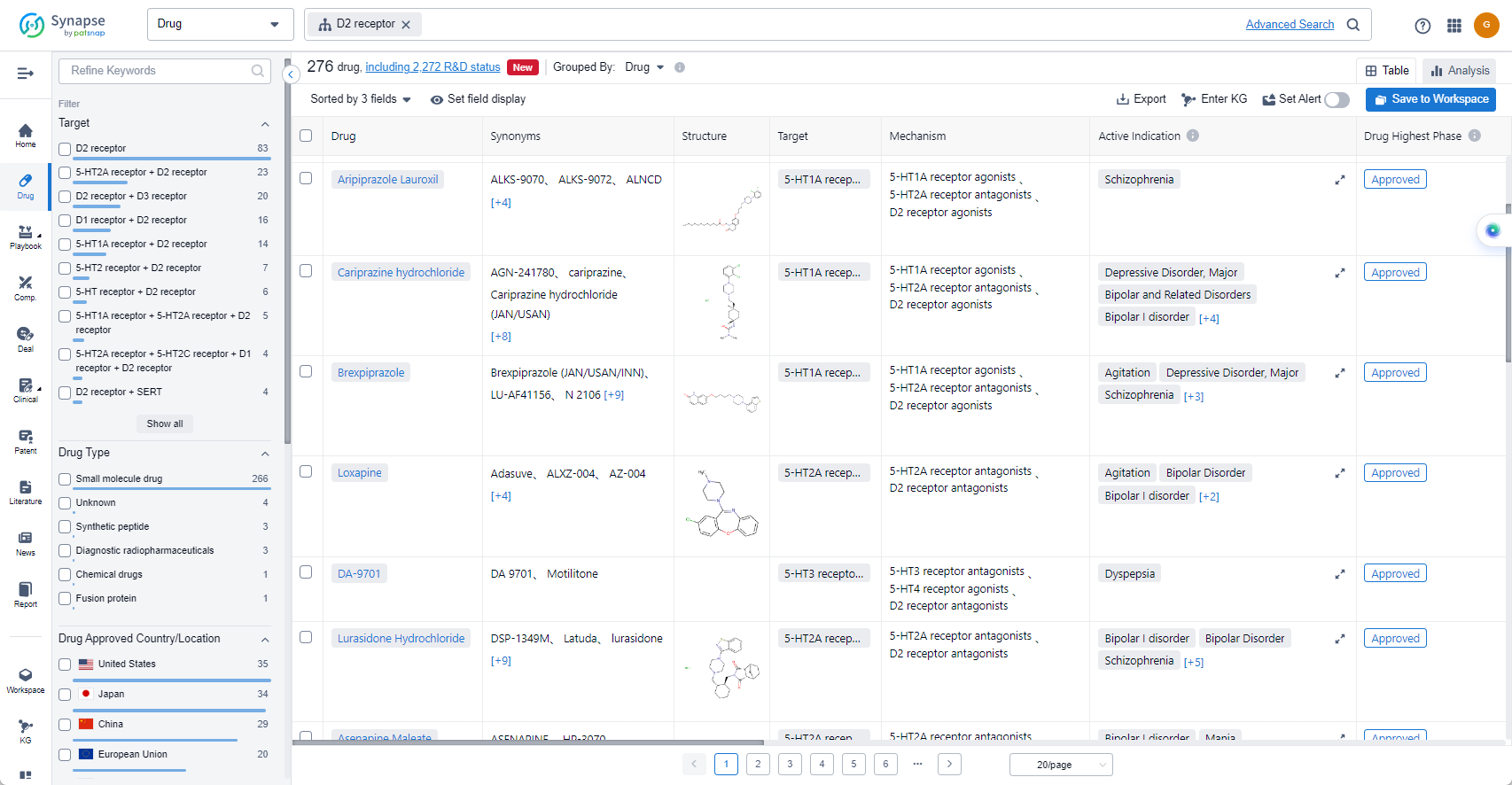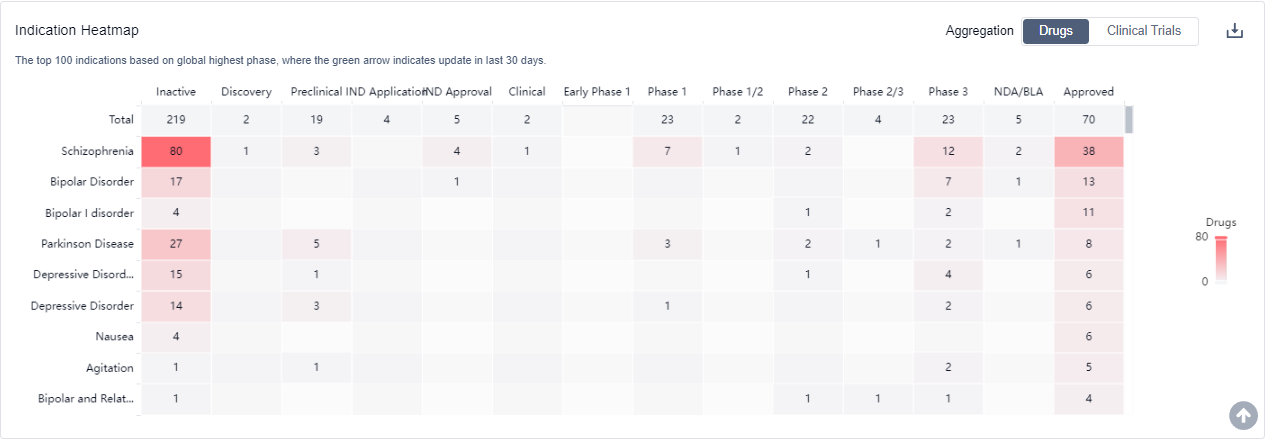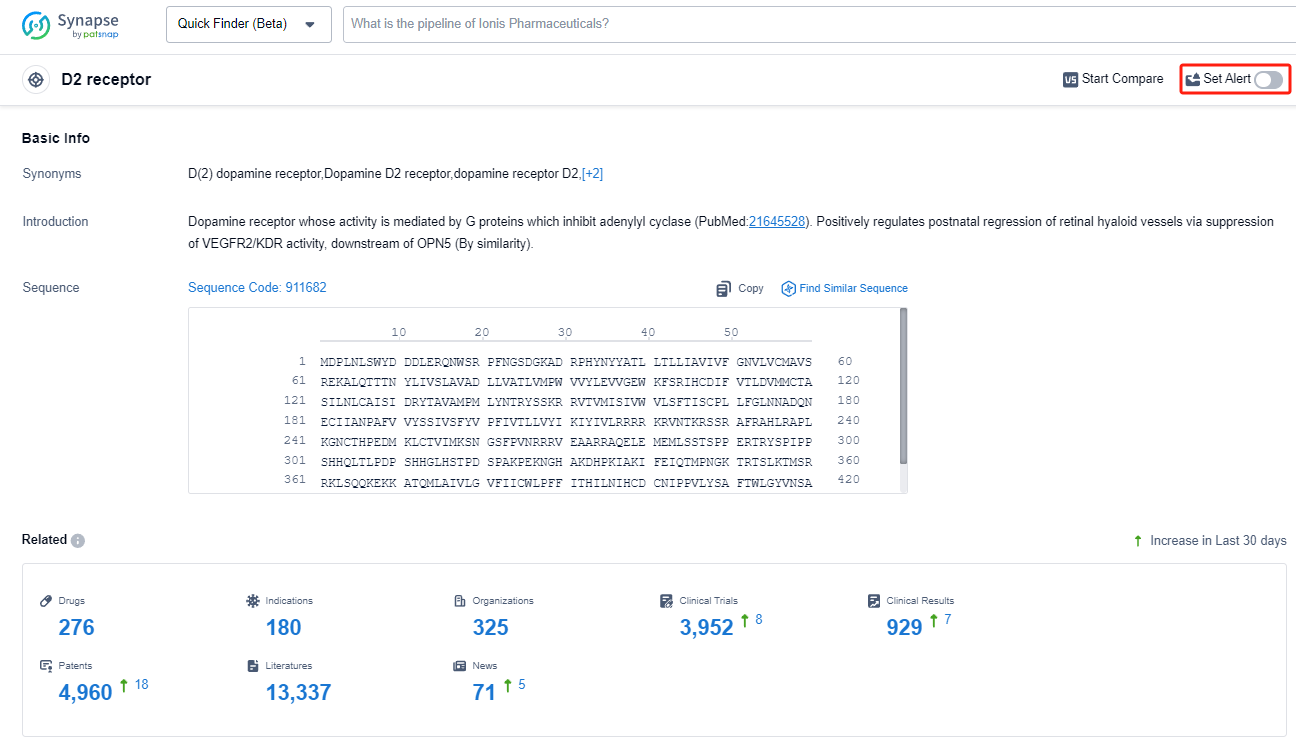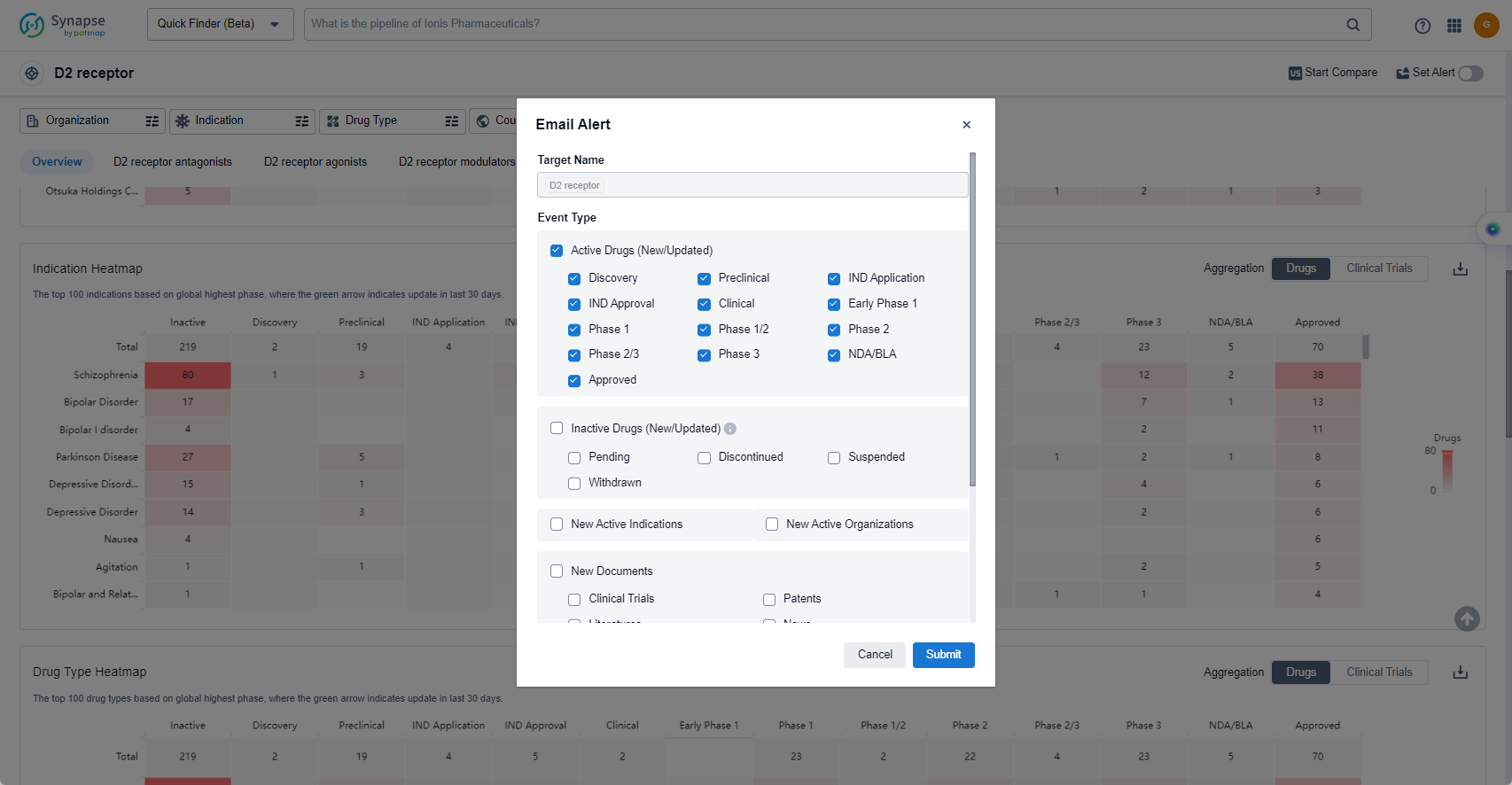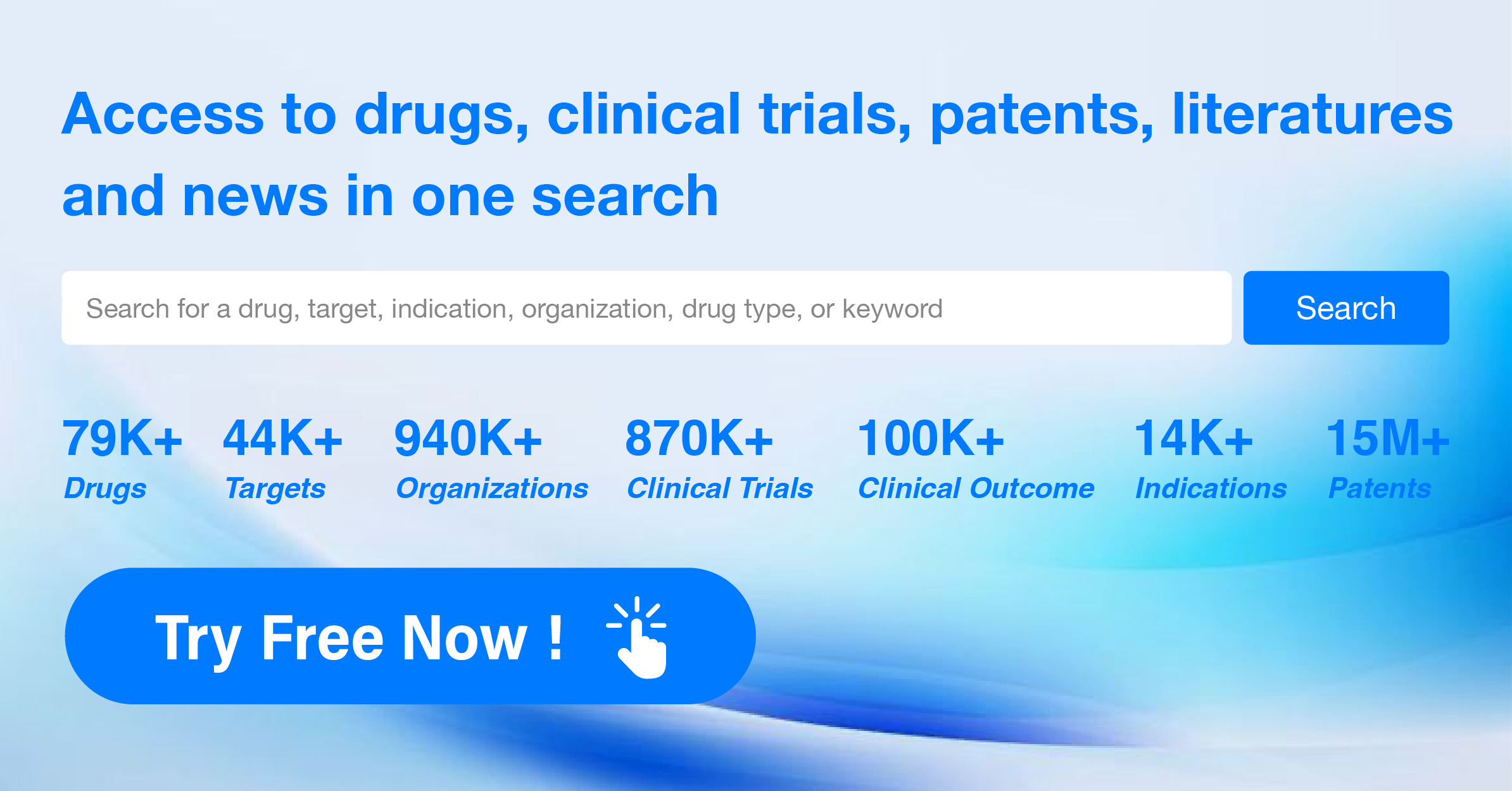D2 receptor agonists: What They Are and How to Stay Updated on the Latest Research
The D2 receptor is a type of dopamine receptor found in the human body. It plays a crucial role in various physiological and neurological processes. As a G-protein coupled receptor, the D2 receptor is involved in the regulation of dopamine neurotransmission, which affects mood, motivation, and reward. Dysfunction of the D2 receptor has been implicated in several psychiatric disorders, including schizophrenia and addiction. Additionally, the D2 receptor is a target for antipsychotic medications, which work by blocking its activity to alleviate symptoms of psychosis. Understanding the role of the D2 receptor is essential for developing therapeutic interventions for psychiatric and neurological conditions.
D2 receptor agonists are a class of drugs that activate the D2 subtype of dopamine receptors. They are primarily used in the treatment of Parkinson’s disease, hyperprolactinemia, and restless legs syndrome. The first D2 receptor agonist, bromocriptine, was approved by the FDA in 2009 for the treatment of type 2 diabetes.
The analysis of the target D2 receptor reveals a competitive landscape with multiple companies making progress in the development of drugs. Johnson & Johnson, Mitsubishi Chemical Group Corp., Novartis AG, Sanofi, and Viatris Inc. have shown significant growth and have drugs approved for the target. Schizophrenia, bipolar disorder, and bipolar I disorder are the most common indications for approved drugs. Small molecule drugs are progressing rapidly, with intense competition from biosimilars. The United States, Japan, and China are the leading countries in the development of drugs targeting the D2 receptor, with China showing notable progress. Overall, the target D2 receptor presents opportunities for further research and development in the pharmaceutical industry.
How do they work?
D2 receptor agonists are a type of medication that specifically target and activate the D2 receptors in the brain. D2 receptors are a subtype of dopamine receptors, which are involved in the regulation of various neurological processes, including movement, mood, and reward. By acting as agonists, these medications enhance the activity of D2 receptors, leading to increased dopamine signaling in the brain.
From a biomedical perspective, D2 receptor agonists are commonly used in the treatment of conditions related to dopamine dysregulation, such as Parkinson's disease and certain psychiatric disorders. In Parkinson's disease, the loss of dopamine-producing cells in the brain leads to motor symptoms. D2 receptor agonists can help alleviate these symptoms by stimulating the remaining D2 receptors and compensating for the reduced dopamine levels.
In psychiatric disorders like schizophrenia, abnormal dopamine signaling is believed to play a role. D2 receptor agonists can modulate dopamine activity and help manage symptoms such as hallucinations and delusions. These medications may be used in combination with other antipsychotic drugs to provide comprehensive treatment.
Overall, D2 receptor agonists have therapeutic effects by selectively targeting and activating D2 receptors, thereby influencing dopamine signaling in the brain.
List of D2 receptor Agonists
The currently marketed D2 receptor agonists include:
- Aripiprazole Lauroxil
- Cariprazine hydrochloride
- Brexpiprazole
- Rotigotine
- Aripiprazole
- Ziprasidone Hydrochloride
- Quinagolide Hydrochloride
- Pramipexole Dihydrochloride
- Ropinirole Hydrochloride
- Talipexole Hydrochloride
For more information, please click on the image below.
What are D2 receptor agonists used for?
D2 receptor agonists are commonly used in the treatment of conditions related to dopamine dysregulation, such as Parkinson's disease and certain psychiatric disorders. For more information, please click on the image below to log in and search.
How to obtain the latest development progress of D2 receptor agonists?
In the Synapse database, you can keep abreast of the latest research and development advances of D2 receptor agonists anywhere and anytime, daily or weekly, through the "Set Alert" function. Click on the image below to embark on a brand new journey of drug discovery!
